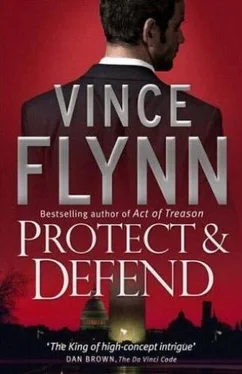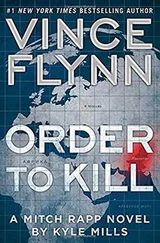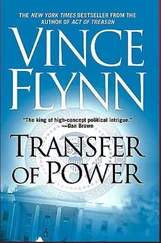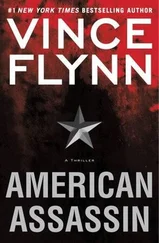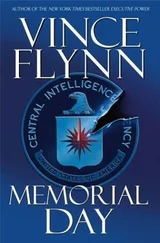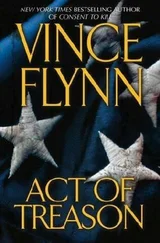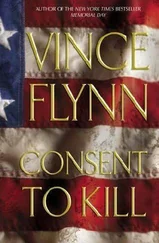ISFAHAN, NUCLEAR FACILITY
The bickering had gone on for the better part of the morning. For Ashani it was like being on a long car trip with his teenage daughters. Most men were easily intimidated by Imad Mukhtar. With his close ties to the hard-line zealots and his propensity for violence, it was wise to steer well clear of him. Farahani, due to either stupidity or conviction, had decided to concede nothing. While Mukhtar pointed out the facility’s shortcomings with the tact of a drill instructor, Farahani defended himself like an insulted artist. The two fed off each other, the rhetoric escalated, and Ashani found himself wishing desperately that his office would call with an emergency that needed his immediate attention.
Ashani leaned against the wall of Farahani’s office watching Mukhtar tick off a list of files he wanted to review.
Farahani, in the midst of lighting a cigarette, exhaled a cloud of smoke and shook his head. “I know that man very well. He would never betray the revolution.”
Ashani had never seen Farahani so stubborn. Maybe after all these months he was finally sick of people making the trip from Tehran to second-guess his every move. Even so, Mukhtar was not some mindless bureaucrat trying to cover his backside. At the young age of fourteen the man had joined the Palestinian terrorist group Force 17. By the time he was twenty, he recognized Yasser Arafat for the corrupt megalomaniac that he was and broke from the PLO. He formed a little-known group called Islamic Jihad that eventually spun off another organization called Hezbollah. That next year he changed the landscape of the Middle East by successfully using car and truck bombs to level the U.S. Embassy, the marine barracks, and the French barracks in Beirut. After those three gruesome attacks, Mukhtar and his men went on a kidnapping spree that turned the international political landscape on its ear for the rest of the decade. Mukhtar was a man of action who did not shrink from violence. He did not hesitate to kill those who did not share his all-or-nothing vision of jihad. Even if they were fellow Muslims.
“Three of your top scientists have been poisoned,” Mukhtar accused.
“No traces of the poison were found anywhere in this facility,” Farahani shot back.
“Who do you think poisoned them?”
“I’m sure the Jewish pigs had something to do with it, but since it did not happen in this facility, the investigation is out of my hands.” Farahani turned to look at Ashani. “If you want to know who killed them, you should ask Azad.”
“I know who killed them,” Mukhtar half shouted. “The point I am trying to get through your thick skull is that the Jews have spies in your country. They have been sniffing around for some time. They specifically targeted those three scientists because they were the backbone of your uranium enrichment program.”
“Anyone can make that assumption. I am not arguing with you. Those men were poisoned at the university. Not here in this facility. There are no Jewish spies here. It is impossible.”
“I want to talk to this man.” Mukhtar held up a personnel file.
Farahani straightened his posture and said, “That man comes from a family whose reputation is beyond reproach.”
Ashani watched as Mukhtar’s fists clenched and his nostrils flared. It now all fell into place for the man who ran the Ministry of Intelligence. He could not believe he had not seen it earlier. Farahani came from a very proud Persian family. A family who could trace their genealogy back to Persia ’s dynastic roots. A very pious family who could see the shah was about to lose his throne, and who in a move of self-preservation threw their support behind Ayatollah Khomeini and his revolutionaries. Farahani was very proud of his Persian lineage, and he was not about to take orders from some Palestinian mutt like Mukhtar.
In the blink of an eye Ashani saw how this could turn out. If Mukhtar got a whiff that Farahani was looking down his prominent Persian beak at him, there would be violence, and there would be a better-than-even chance that Farahani would end up dead or permanently injured. Farahani’s brother, who sat on the Supreme Council, would be extremely upset. Mukhtar was too valuable to punish, so he would be sent back to the front lines in Lebanon. Powerful people would want to know why Ashani did not step in and stop things before they got out of hand. As tempted as he was to let it play out, Ashani decided that in the long run it would only make his life more difficult.
Ashani pushed himself off the wall. “I know the man you are asking about. He is indeed from a good family, which is exactly why we should talk to him.”
Farahani looked at Ashani with a confused, almost hurt expression.
“He will speak honestly,” Ashani said. “If there is anything he has seen, or anyone he is suspicious of, he will tell us.”
Farahani paused and then gave his consent.
“Good,” Mukhtar announced. “Where is he?”
Ashani checked his watch. It was almost noon. “Why don’t you send your people to collect him and have them escort him to the café?” Ashani did not give Farahani a chance to argue. He opened the office door. “I will wait for you by the elevator.”
Mukhtar joined him in the hall a few seconds later. He pulled up alongside the Intel Minister and said, “This man is an idiot.”
Ashani shrugged. “He is a very hard worker.”
“If that is all you want then you should hire an ox.”
Ashani sighed. “Imad, I do not make personnel decisions outside my ministry.”
“Well, you should.”
“There are other things at play, and although he is not the shrewdest man in the government, he is incorruptible.”
“He likes these people too much. He is too easily fooled.”
“I am not sure any of it will matter.”
“What is that supposed to mean?”
“We have been too open about this program. The Americans have learned the Natanz facility is a sham. We pumped millions of dollars into a fake facility, so if they ever did attack they would pick the remote location where the reactor was supposedly located. It was a good plan. There is no population in the immediate area. The Americans would have taken the bait and left this facility alone.”
“They know Natanz is fake?” It was obvious by Mukhtar’s tone that this was news to him.
“Yes, and now they and the Israelis know we have placed all of our eggs in one basket.”
“I do not think they will attack. At least not by air. They are already on shaky ground with the international community.”
Ashani hesitated to say what was on his mind, but a part of him wanted to take a stand. “A year ago I would have agreed with you.”
“What has changed?”
They reached the elevator and faced each other. They were the same height. Ashani was slender where Mukhtar was boxy. In a conspiratorial whisper Ashani said, “Our good friend has been a bit too verbose about his desire to see Israel wiped off the face of the map.”
“You don’t share his views?” Mukhtar asked with suspicion.
“I said no such thing. I am simply questioning the wisdom of making the threat before you can back it up.”
Mukhtar nodded ever so subtly. “There is no undoing the past. The important thing now is to make sure this facility is secure, and I do not think this halfwit is up to the task.”
Ashani did not want to be pulled any further into this mess. “I am not as convinced as you that they will not attack by air. A single B-2 bomber could enter our airspace and we would never see it. They fly at fifty thousand feet and can carry a payload in excess of forty thousand pounds. I have no doubt that the Americans have designed a new weapon that is capable of penetrating each and every floor of this facility.”
Читать дальше
